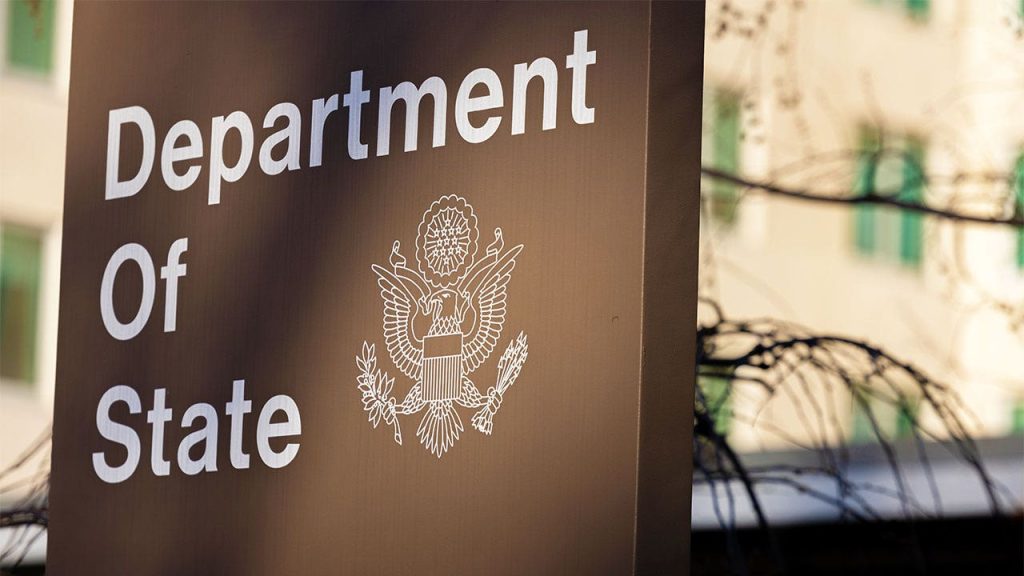A former budget analyst at the State Department, Levita Almuete Ferrer, has pleaded guilty to embezzling over $650,000 from the agency during her tenure. Between March 2022 and April 2024, Ferrer exploited her signature authority to write 63 checks to herself and others, significantly impacting federal financial integrity. As part of her plea agreement, she faces potential prison time and is required to repay the stolen funds.
| Article Subheadings |
|---|
| 1) Details of the Embezzlement Scheme |
| 2) Methods Used to Conceal Activity |
| 3) Legal Proceedings and Consequences |
| 4) Reactions from Officials |
| 5) Broader Implications for Government Oversight |
Details of the Embezzlement Scheme
The embezzlement scheme orchestrated by Levita Almuete Ferrer involved a systematic abuse of her position as a senior budget analyst within the State Department’s Office of the Chief of Protocol. Over the span of approximately two years, Ferrer wrote a total of 63 checks, amounting to $657,347.50, directly into her personal bank accounts. Among these checks, 60 were written to herself, while the remaining three were issued to a known associate, highlighting the personal nature of her illicit actions.
The checks primarily drew from a designated State Department checking account, where Ferrer held signature authority. This authority is typically entrusted to senior employees, underlining the need for robust oversight mechanisms within government departments. Prosecutors noted that Ferrer’s conduct represented a blatant disregard for her responsibilities and the public trust placed in her.
Methods Used to Conceal Activity
To mask her fraudulent activities, Ferrer relied on accounting software, specifically QuickBooks. According to legal authorities, she would initially enter her name as the payee on the checks within this software. Subsequently, she modified the payee information to list a legitimate State Department vendor, effectively obscuring her identity from anyone who could potentially scrutinize the records.
This tactic of altering payee names not only demonstrated an alarming level of premeditation but also a significant understanding of financial processes, which is unsettling for an individual in a trusted governmental position. Prosecutors viewed this manipulation of records as an attempt to create a façade, giving the appearance of compliance and legitimacy while committing a serious crime.
Legal Proceedings and Consequences
As the investigation unfolded, Ferrer was formally charged and subsequently pleaded guilty to theft of government property. Legal proceedings indicated that she would face acute penalties for her betrayal of trust, with a sentencing date set for September 18. It is important to note that she could potentially serve a maximum of 10 years in prison, reflecting the gravity of her transgressions.
In addition to possible incarceration, Ferrer’s plea agreement mandates restitution to the government for the total amount stolen. Furthermore, she is subject to a forfeiture money judgment equivalent to the sum misappropriated, illustrating the financial repercussions that individuals may face when engaging in similar unlawful behavior within government structures.
Reactions from Officials
The unfolding scandal has elicited various responses from officials and the broader governmental community. Lawmakers and state officials expressed heightened concerns regarding internal controls within the State Department, emphasizing the importance of rigorous oversight to prevent future incidents. Many called for comprehensive reviews of financial management practices across federal agencies to mitigate risks associated with fraudulent activities.
The incident has reopened discussions about the need for policy reforms aimed at strengthening accountability frameworks within government entities. By addressing vulnerabilities that allow for financial misconduct, officials hope to restore public trust in governmental operations and ensure that such abuses are curtailed in the future.
Broader Implications for Government Oversight
This case poses considerable implications for the realm of government oversight. As public resources are entrusted to individuals, the incident not only spotlights the need for stringent ethical standards but also underscores the necessity for enhanced monitoring systems to prevent misappropriation. There is a heightened realization that continuous scrutiny is critical in safeguarding taxpayer money and ensuring the integrity of public service.
Furthermore, the case is poised to stimulate discourse among policymakers about the direction of compliance regulations. As authorities contemplate future measures, there is an opportunity to consider technological advancements and auditing practices that can contribute to a more secure financial operating environment within governmental agencies.
| No. | Key Points |
|---|---|
| 1 | The embezzlement totaled over $650,000, impacting federal funds. |
| 2 | Ferrer used her signature authority to write checks to herself and others. |
| 3 | She manipulated QuickBooks to conceal her actions from scrutiny. |
| 4 | A sentencing date has been set, with potential maximum punishment of 10 years in prison. |
| 5 | The case has raised significant concern regarding government financial oversight and accountability. |
Summary
The embezzlement case involving Levita Almuete Ferrer serves as a critical reminder of the vulnerabilities within governmental financial systems. With serious financial misconduct on the rise, the repercussions of her actions extend beyond individual accountability; they signal a pressing need for systemic improvements in oversight practices aimed at safeguarding public trust and financial integrity.
Frequently Asked Questions
Question: What specific role did Levita Almuete Ferrer hold at the State Department?
Levita Almuete Ferrer was a senior budget analyst within the Office of the Chief of Protocol.
Question: How did Ferrer manage to conceal her fraudulent activities?
Ferrer altered payee information in QuickBooks to disguise the checks written to herself as legitimate transactions.
Question: What are the potential consequences Ferrer faces following her guilty plea?
Ferrer could face up to 10 years in prison and will be required to repay the embezzled amount to the U.S. government.


